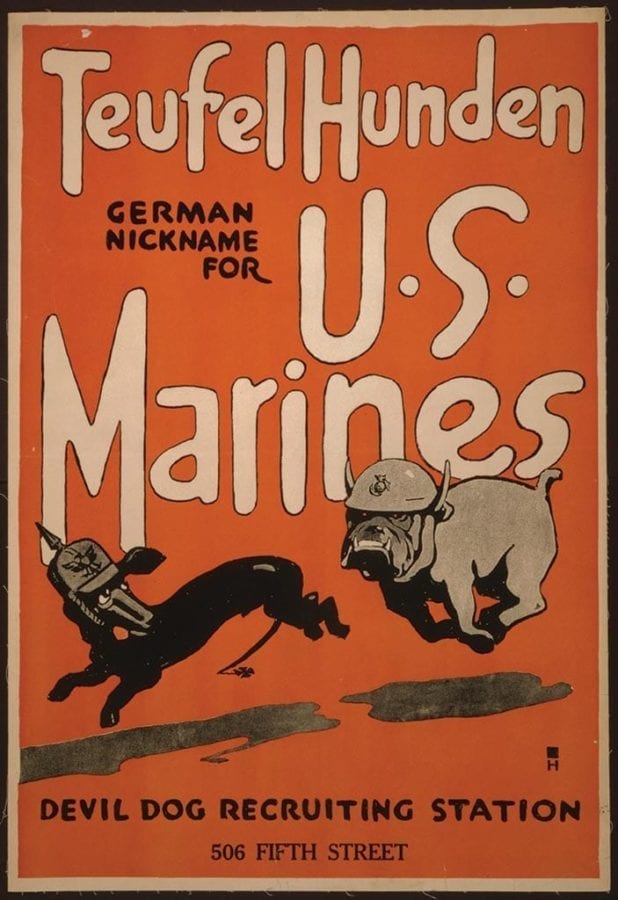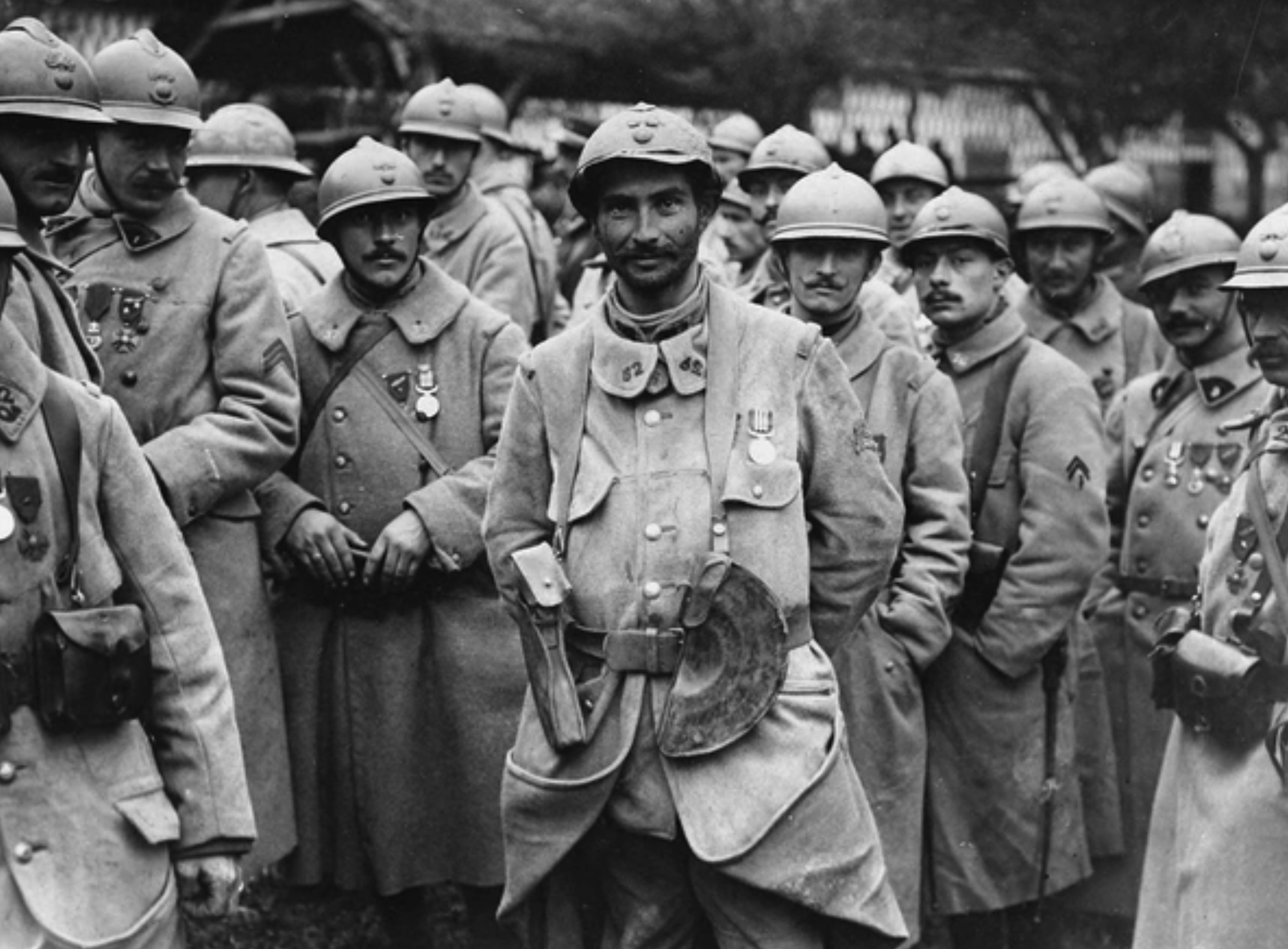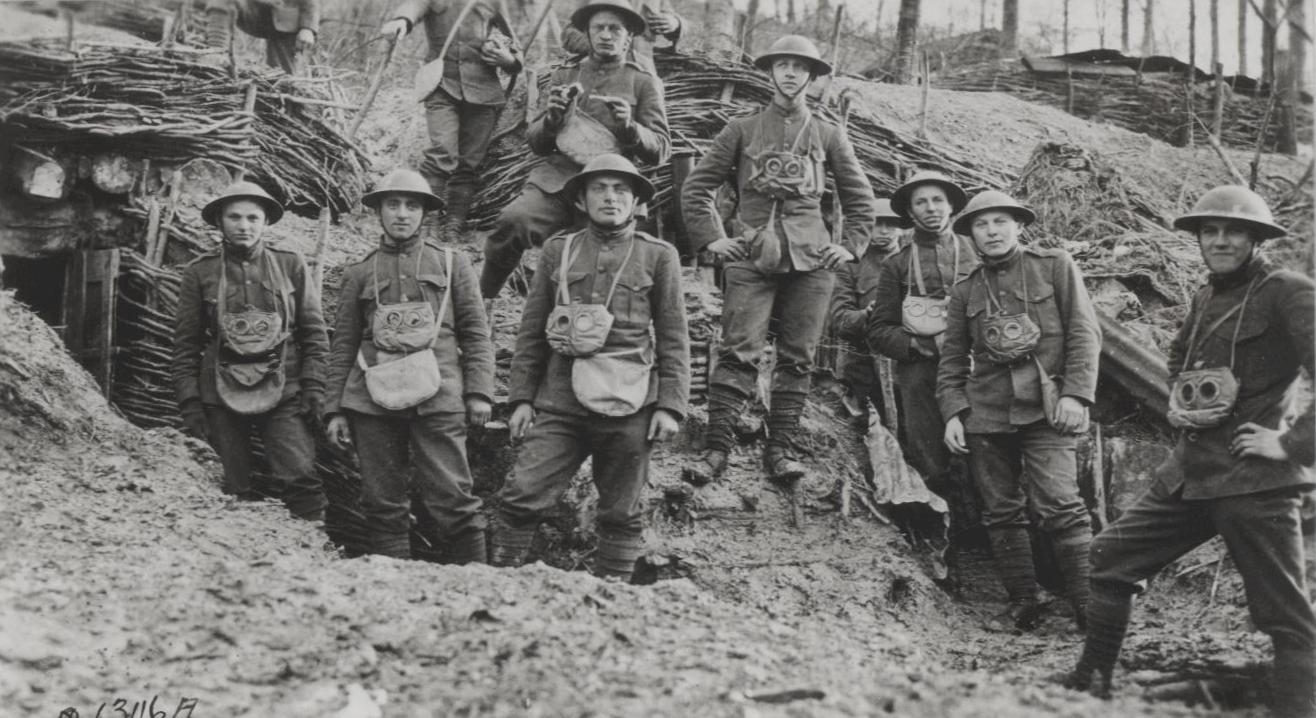The Marines rained volleys of lead hell onto — and into — their German foes. The Germans were shocked to be hit with effective gunfire at such a distance. It would’ve been similar to the first people who saw someone killed by a drone in the Global War on Terror. If you didn’t know the technology existed, the scene would be terrifying. To think someone can reach out and kill you without you even having a chance to fight back or get to cover and with a technology you’d never seen would throw you into a huge mental OODA-loop.
The Marines continued methodically mowing down German troops as they trampled through the previously unspoiled wheat fields. The Germans who weren’t quickly killed retreated into the woods.
The German Retreat
It was then that the Germans realized that they weren’t fighting war-weary French soldiers, but fresh U.S. Marines. In light of this, the commander of the German 28th Division told his men, “We are not fighting for ground – for this ridge or that hill. It will be decided here whether or not the American Army will be equal to our own troops.” He soon got his answer.
As the battle raged, Capt. Williams continued to lead his men from the front. On June 11, 1918, Capt. Williams led an assault in which only 17 of 260 men involved weren’t either injured or killed. In a statement he wrote after the battle, a French major, who was present for what would ultimately be Capt. Williams’s last push, said he ordered him to withdraw. Captain Williams told him to, “Go to Hell!”
Williams continued fighting and was ultimately gravely injured by mustard gas and enemy shrapnel. As he lay wounded on the battlefield, Lt. Orlando H. Petty (USN), a young medic, attempted to render him aid even though under great personal risk. In response, Capt. Williams said, “Don’t bother with me. Take care of my good men.”
Heroic Actions at Belleau Woods
Although seriously wounded himself, Lt. Petty carried Capt. Williams through the German’s artillery barrage and back to safety. Despite his daring rescue, on June 12, 1918, Capt. Williams succumbed to his injuries.
Lt. Petty was later awarded the Medal of Honor for his actions at Belleau Wood. His Medal of Honor citation reads,
“The President of the United States of America, in the name of Congress, takes pleasure in presenting the Medal of Honor to Lieutenant (MC) Orlando Henderson Petty, United States Navy (Reserve Force), for extraordinary heroism while serving with the Fifth Regiment, U.S. Marines, in France during the attack in the Bois-de-Belleau, 11 June 1918. While under heavy fire of high explosive and gas shells in the town of Lucy, where his dressing station was located, Lieutenant Petty attended to and evacuated the wounded under most trying conditions. Having been knocked to the ground by an exploding gas shell which tore his mask, Lieutenant Petty discarded the mask and courageously continued his work. His dressing station being hit and demolished, he personally helped carry Captain Williams, wounded, through the shellfire to a place of safety.”

Devil Dogs
Following the combat at Belleau Wood, the 461st Imperial German Infantry famously gave the Marines the nickname “Teufelhunden,” or “Devil Dogs.” The nickname stuck and even on a present-day Marine Corps base you can hear Marines respectfully refer to one another by this title. According to another report provided after the war ended, “A German general wrote to his chain of command in August 1918 that the Marines had taken Belleau Wood ‘with incomparable bravery’ and earned the right to be considered ‘opponents worthy of respect.'”
In the end, Captain Williams received three Silver Stars and a Purple Heart for his actions in Belleau Wood. He was posthumously promoted to major for his courageous battlefield actions.
As is stated on Virginia Polytechnic Institute’s page honoring Major Lloyd Williams:
“Major Lloyd Williams is not only the first Virginian to die in World War I, he is also the first Virginia Tech alumnus to die in the war. Since then Williams has been remembered by the Marine Corps’ 2nd Battalion, 5th Regiment through their adopted motto: ‘Retreat Hell.’ He has also been remembered at Virginia Tech through Major Williams Hall (aka: Major Bill), which was named by Virginia Tech in his honor in 1957.”
Captain Williams’s actions during the Battle of Belleau Wood, and those of other Marine Corps heroes such as Sgt. Dan Daly (who received two Medals of Honor for his actions), are what helped lay the foundation for the Marine Corps to be known as one of the most feared fighting forces on the planet.
Williams’s actions also remind us that every military member we put into harm’s way has a personal story. Some stories are richer than others, but each man or woman who dies in war leaves behind family, friends, and the life they’d wanted for themselves prior to enlisting. We must never forget the sacrifice that these men and women have made over the last 250 years and the life they left behind to make a difference.












COMMENTS